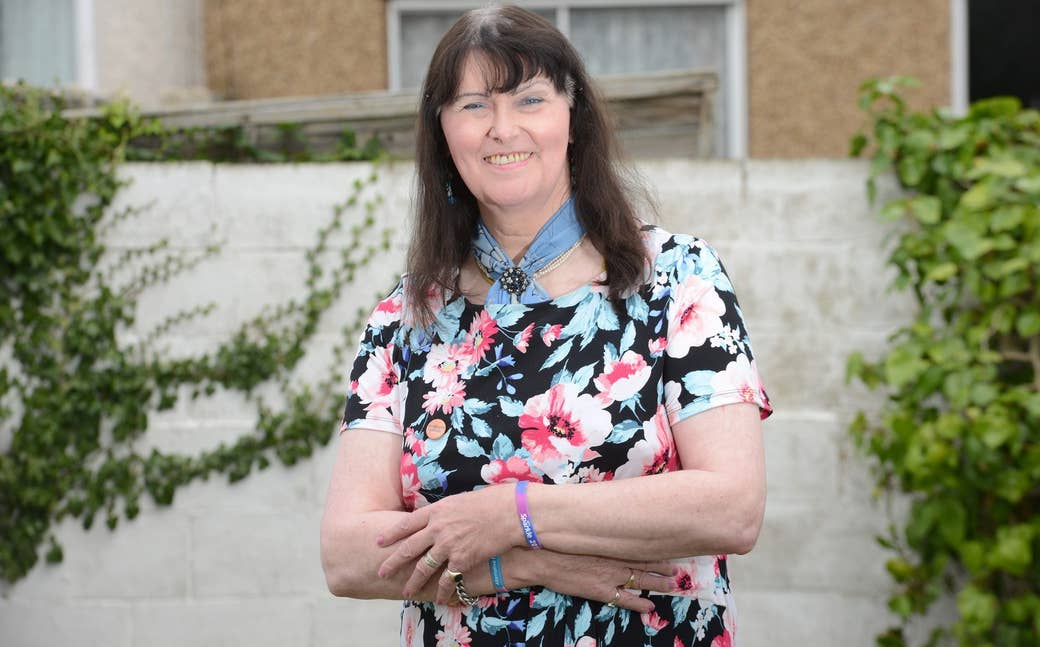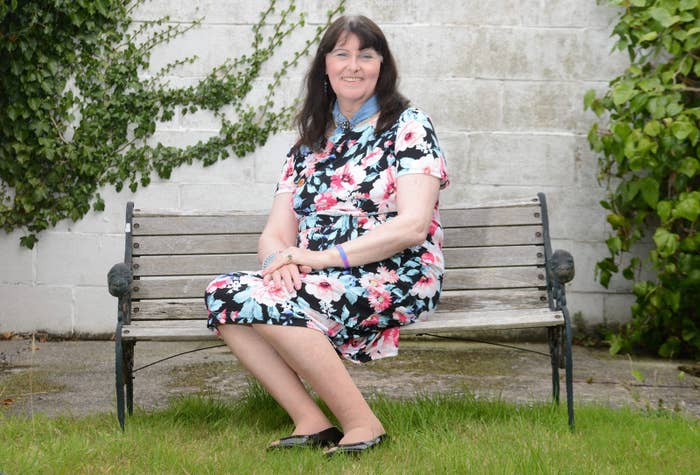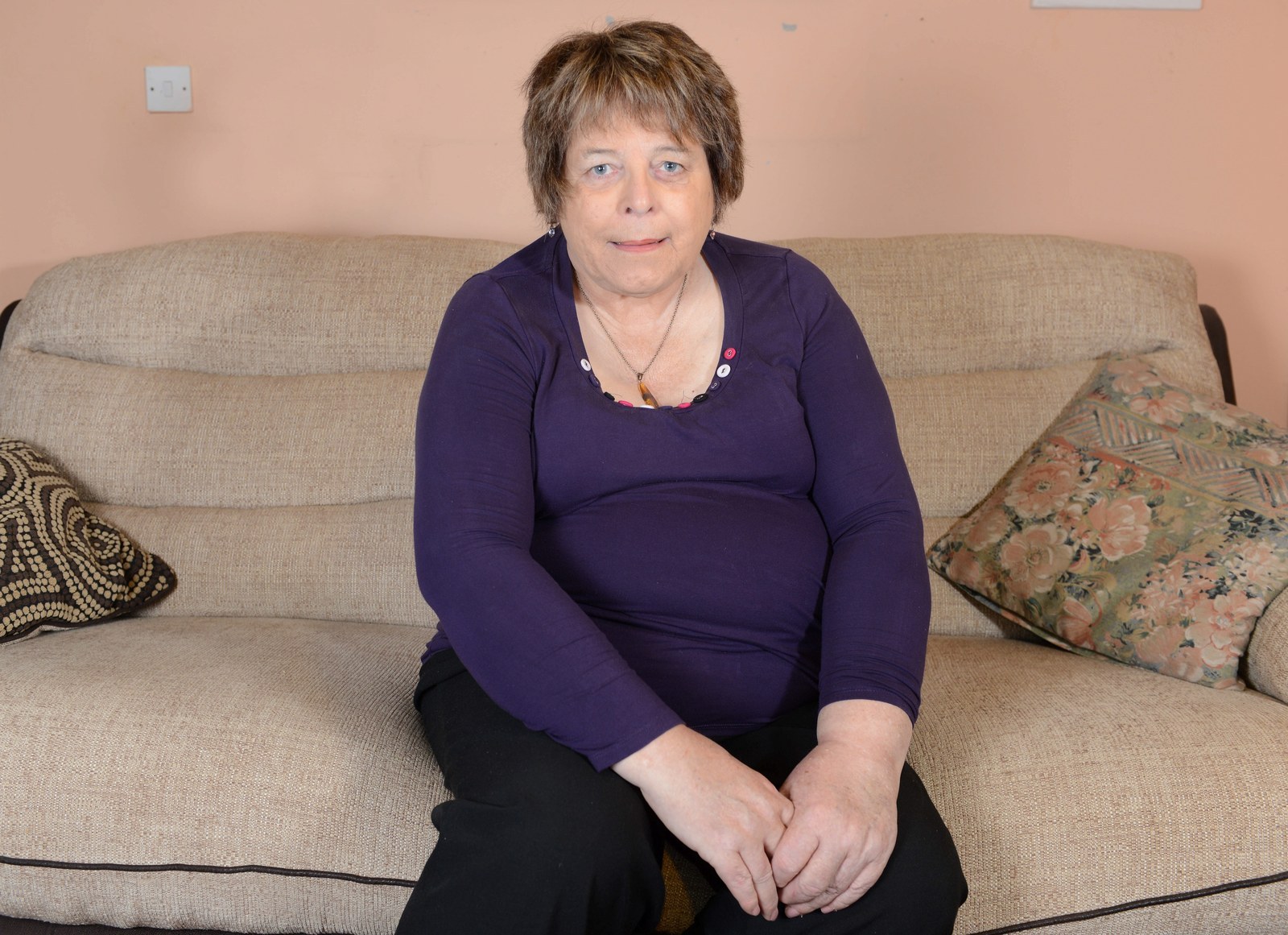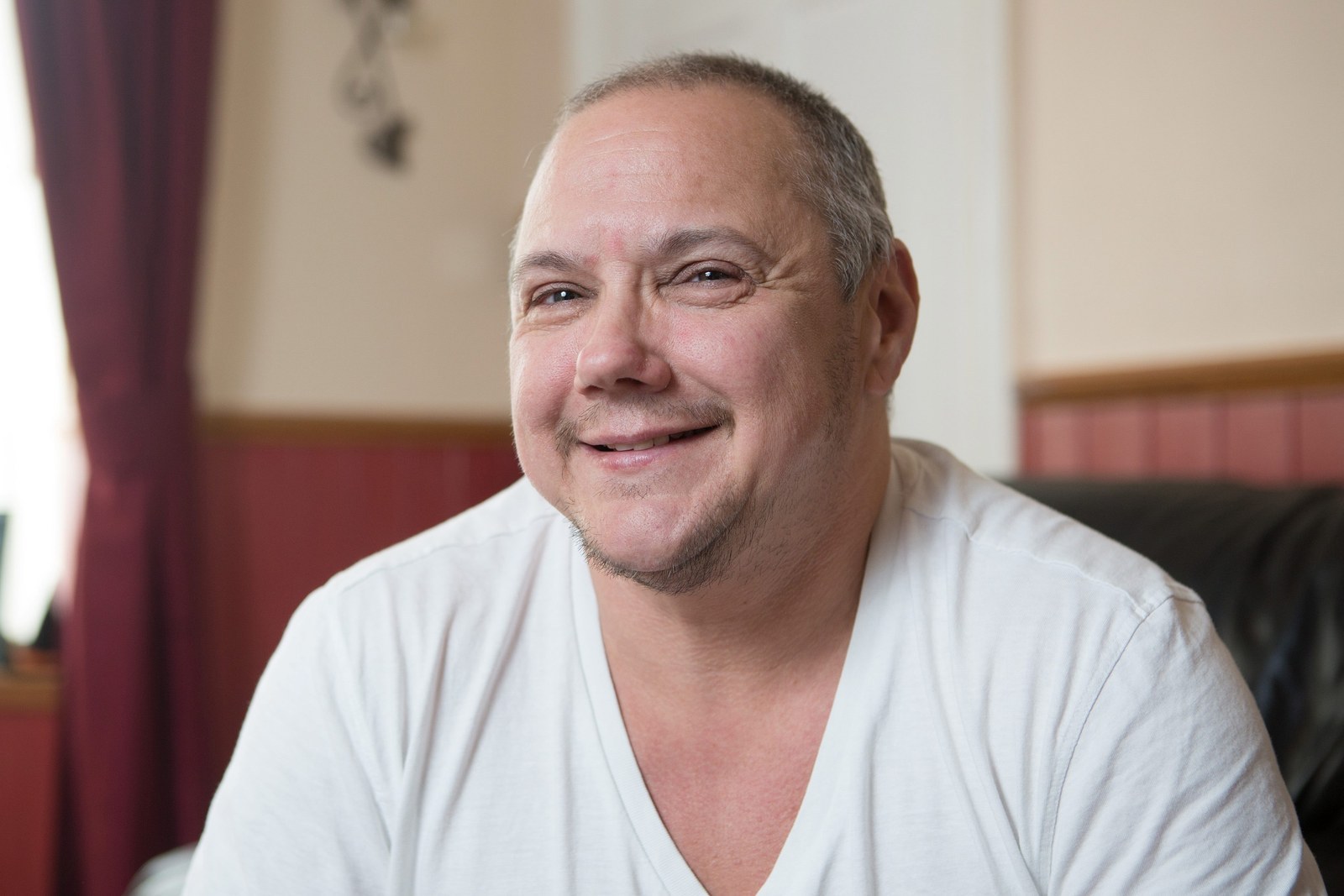
"Over the years, I reckon in lost salary, seniority, and pension interruptions I have lost at least £250,000, just for being trans.” This is Jenny-Anne Bishop. Her life straddles seven decades, from the days before medical transition was possible to an era of supposed legal protection for transgender people. Her experiences in employment – of sackings and bullying – might almost be expected 20 years ago. But they are not what life is supposed to be like for trans people in Britain today. This is because, six years ago, something extraordinary happened.
Finally, after generations of discrimination, of being fired, mocked by colleagues, or rejected at interview, trans people saw a new law introduced in Britain that promised to change life for them at work: the Equality Act 2010.
It not only stated that a person’s gender identity was protected at work, and could not be used to bar anyone from employment – building on previous legislation – but also demanded that employers protect their workers from harassment, and create a culture of equal opportunities.
There were exceptions: Some employers, such as women’s refuges, could argue that what they offered was sufficiently gender-specific as to justify barring trans people. But the legislation prompted great optimism – that perhaps trans people would no longer be driven out of jobs or left resorting to desperate measures to make money. And in further cause for optimism, earlier this year, new guidelines from the women and equalities committee recommended to parliament that even these exceptions should be overturned.
But the reality for some is very different from what the law says. A recent survey of 435 trans people found 60% reported experiencing discrimination at work. And when BuzzFeed News approached trans people – of all ages – to talk about their experiences, both before and after the Equality Act was passed, a troubling picture emerged highlighting the complexities trans people can face in the job market – and what more needs to be done to deliver true equality in the workplace.

Jenny-Anne Bishop's career in the oil and gas industry spanned 40 years – she's now 70 – back to when she knew she was a woman but was still presenting as male.
“I'd been out in the [trans] community from the early '70s," she says, "but every time work found out I was trans in my private life it wasn't long before I was fired or made redundant.” And four decades later, some companies were no better, she says; they were simply more covert about their discrimination.
“Even after the gender reassignment regulations were added, particularly in the private sector, there was always a way found to get rid of you,” she says. “I lost my job twice again in the noughties.” For Bishop, the cause of such discrimination is simple.
“It really is fear of the unknown,” she says. “It's prejudice. I was always told whenever I lost my job: ‘What on earth would the customers think?’”
Despite a CV that includes senior-level experience at director level, Bishop says her career has been marred by setbacks – frequently because of transphobic attitudes. Time and again, she says, she lost out on promotions and the salary that goes with them because of who she is – and the introduction of anti-discriminatory legislation did not sufficiently change the attitudes of employers. On one occasion a new employee was hired to look after the extra business she had generated. “He turned out to be transphobic,” says Bishop, and the ensuing tension between her and him became “the excuse to force me into retiring sooner than planned”.
With the law now on her side, she felt she could have taken action against what was happening. But, says Bishop, “I just felt too weary to fight it any more.” Her partner offered to support her until her pension payments began, and so rather than battle any more, Bishop instead retired.
Now living in Rhyl, North Wales, she volunteers with the local trans community and numerous LGBT groups, assisting with the rehabilitation of trans young offenders, raising awareness in businesses, and providing equalities training to the North Wales police. It’s more rewarding, she says, but doesn’t stop her looking back on her career with regrets.
“I'm sad as I think my talent was lost so often in jobs I really enjoyed doing,” she says. “But the moment anyone found out you were trans you suddenly became this worthless person.”

Bishop’s story is not uncommon. Helen Dale, 68, recently retired from her IT project manager role at the National Probation Service, where she was chair of the LGBT staff association. This, combined with her experiences as a campaigner for trans rights, has meant Dale has encountered countless others who have been penalised after transitioning.
“I know of managing directors at engineering companies who now work as telephone operators,” she says. “I can cite examples of former managing directors of their own companies being ousted, or their businesses failing as a result of their transition. Or sales staff being pulled off the front line because ‘it might embarrass the customers’. And qualified psychiatric nurses ending up in cleaning jobs. Lots of cases of discrimination and harassment at work leading to resignations.”
Dale, who lives in Salford, started to transition while working at a computer workshop in the late '90s. Originally on a rolling contract, she was labelled “the best worker in the workshop” by her manager and promised a permanent position.
“In the middle of the year I was told, ‘You're going to be taken on permanently,’” she says. “But one of the other engineers said to me that if I was to transition then it would make it very difficult for the ‘rest of the guys in the workshop’. He was a good friend of one of the managers and a week or so later I was told that my contract was not being extended after all.” She adds, sarcastically, “Of course that had absolutely nothing whatsoever to do with the fact I was transsexual or that I was going to transition.”
Dale lost her job. But others have found themselves locked out of employment entirely, with employers nervous about trans employees in public-facing roles.
“You get organisations that think they're going to lose customers if they have trans people on the front line, so they don't take the ‘risk’,” says Dale. “When I started my own transition in the late '90s I'd met something like 300 individuals who had transitioned or were in the process of doing so. Of those only nine had successfully held on to their jobs during that process.”

But, she adds, experiences vary enormously, with some people not directly discriminated against, but alienated by their environment following transition.
“You've got those [trans women] who started work in macho jobs to prove they were ‘men’ and they no longer feel comfortable in those environments. Or those who don't feel comfortable in themselves and in meeting other people [at work] who have then resigned from their jobs because it's too much to cope with.” All in all, she says, “I would think that very, very few people who transition achieve what they could have done, had transitioning not been necessary.”
When Reena Gibson, 46, originally came out as trans in 1994 she was told by her employers, a family-run engineering company, that coming to work dressed as a woman would put her job at risk. Though she heeded the threat and continued presenting as a man, they still made her life hell. After closely monitoring the time she arrived at work, her employers eventually made good on their promise and fired her for breach of contract.
It took just three months to tally up enough incidents of lateness to provide legal grounds to sack her (she says the countless extra hours she’d worked weren’t factored in). After a judge ruled against Gibson at a tribunal, she was forced to move on. Despite applying for jobs she was more than qualified for, her honesty about her trans status proved too much for interviewers.
“One in particular involved doing the same job but in a packaging company,” she says. “I attended the interview in guy mode, but when asked for the reasons why I left my last job I said, ‘If I tell you the truth you’ll never offer me the job.’ They asked me to just tell them anyway. Needless to say, I was never invited back there again.”
Eventually she was offered work – of sorts. “Two part-time jobs. One of the employers told me at the interview that they don’t have an issue with me as long as it doesn’t get passed on to the customers.”
Her negative experiences convinced Gibson to de-transition, so she spent the next 15 years presenting as a man. She eventually came out again in 2012, the same year she was made redundant from her role as a school supervisor. Though the redundancy wasn’t related to her gender identity, things have not been easy since then.
“Finding jobs as a guy was very easy over those 15 years, but since my redundancy in 2012 I’ve struggled to find work again,” she says. “I went for an interview for a simple driving job on minimum wage and I’ve been turned down for that too, most probably due to my trans status since I also have a clean driving licence. I've applied for jobs where I've declared it [being trans] and heard nothing back, and where I haven't declared it I've got emails and phone calls.”
Gibson's experiences have left her terrified of rejection.
“I have a huge fear of not being accepted at interview, probably due to the amount of knock-backs I had when I came out the first time,” she says. “I think this is the reason why I’d rather declare it on the application forms than just turn up for the interview and they see for themselves: I’m not one of those that easily ‘passes’.” There are, she adds, many trans people who “pass really well and work in stealth mode, too afraid to reveal their history”.
Employers, she says, are so focused on the bottom line that they forget a simple principle: If you do not encourage or even allow trans employees, you may be missing out on the best person for the job.
“Businesses are run to stay in business and be profitable, and I feel a lot of employers are unwilling to take the risk with many of us," Gibson says. "If I had just come out of prison there would be help out there to get me back into work, but for people like us there's not a lot out there. I'm still waiting for that drive for trans people, where [employers] say, ‘Look, we haven't got enough trans people working for our organisation, let's jump on that bandwagon.’”

Trans men can be equally affected, but in different ways, especially for young guys emerging on to the job market today. Tanner Lewis Gibbins-Klein is 21, lives in Bradford, and is “pretty proud and open” about being trans, he says. However, he doesn’t want his gender identity to impede his career and feels he has to make careful calculations about what to say on job applications.
“I do a lot of LGBT and trans community work. So I've automatically outed myself just by putting my experience down on a CV,” he says. “But if I left stuff out I wouldn’t have much recent experience.” And beyond having little choice but to be open about his gender identity when applying for jobs, at the point of work being offered, there are further considerations.
“My passport still has an ‘F’ in it so I know that any job I apply for, if they ask for proof of ID I'm at some point going to have to show them and out myself. I can't even use my [previous] boss as a reference because he never knew me with my name as I am now and I can't bring myself to out myself to him just in order to ask him to act as a referee.” Once in employment, further issues arise, whether or not he is out.

“I’ve got a job this summer working with 16- to 18-year-olds. I am going to be doing quite physical activities in the first week and I haven’t had top surgery [to remove breasts] yet, so I bind. The idea of constantly looking over my shoulder and making sure I’m not going to be doing anything that’s going to out myself or compromise the trust that the young people have in me...it’s just unnecessary hassle.”
Transitioning is not a swift process, and other trans men BuzzFeed News spoke to said the misconception that it requires one single surgical procedure is still far too common.
“With a trans man it can be up to four operations, so obviously that’s time off,” says Felix Fenlon, 49, who’s from Hull and is currently working as a teaching assistant. “There's the chest surgery, which could be two operations, depending on how large you are or your recovery times. Then of course you have the complications that could happen when you have phalloplasty [to create a penis] as there’s a very high risk of infection in that area of the body.”

People who transition during employment should be protected by law. The Equality Act 2010 states that employers should not treat those undergoing a transition any less favourably than they would someone who is sick or injured. But legal protections do little to curb the pressure that trans people experience as a result of taking time off.
“Just because you've had the training [about employment discrimination] doesn't mean you're still not going to discriminate,” says Fenlon. “But from an employer’s point of view I understand: It’s a lot of time off we have, especially the men. But most of us will try and accommodate that by having it in our holiday time.”
He adds: “Since 2010 I haven’t had any actual holidays. I’ve gone back to work in the actual recovery period and I’ve been absolutely knackered, but what can you do? You’re always looking behind your back and thinking will the next operation be the one where they say, ‘Right, we’re worried by your sickness [leave]’? You start to feel intimidated and think, ‘Oh my god, I’m going to lose my job.’”
Despite the myriad issues trans people can face in and out of employment, there are still many who’ve broken through, enjoying successful careers. And there are now employers making concerted efforts to change their workplace environment, encouraging and supporting trans employees.

For Reena Gibson, after three years of unemployment, she eventually found work as a teaching assistant in a specialist school in Birmingham. “Work has been amazing and the staff have been so kind and wonderful,” she says. “I think the school has quickly tagged on to the previous skills I have and wants to make use of them.”
Something else happened, something that employers do not always consider: the huge benefits that can come with having trans employees.
“So many staff have come up to me and told me what a positive impact me being there is having,” says Gibson. “Not just on the students, but on the staff too. I couldn't have wished to work in a better place.”
